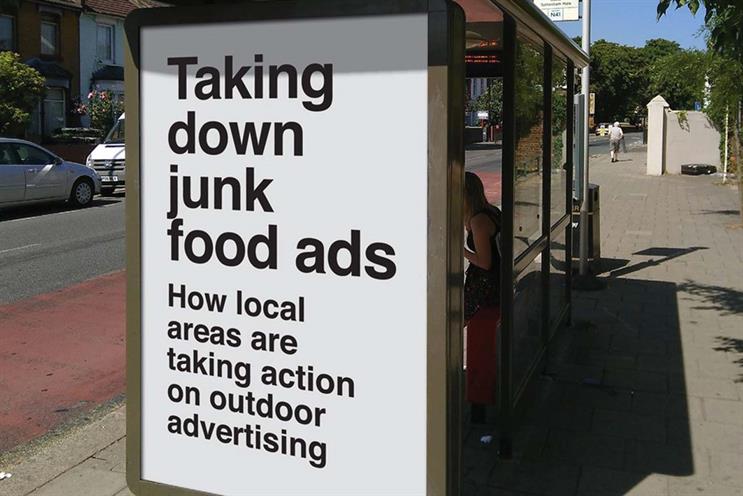
Local authorities in the UK should be given greater powers to crack down on advertising of foods high in fat, salt or sugar, a report from campaign groups Sustain and Food Active said.
The study explored the existing powers local authorities have to regulate advertising and found that, in many cases, they were limited. It made a series of recommendations, including:
-
Local governments should be given increased powers to regulate advertising, including on telephone boxes, which are usually outside their jurisdiction
-
The government should tighten restrictions on advertising in stores and in areas surrounding stores
-
The Advertising Standards Authority should be given the power to levy fines on any company found to break advertising rules more than once in three years
-
The ASA should consider any area where children congregate to be unsuitable for advertising HFSS products, including near nurseries, children’s centres, parks, family attractions and leisure centres (this approach currently only applies near schools)
hailed the HFSS ad ban on the Transport for London network introduced earlier this year by the mayor of London, Sadiq Khan.
Ben Reynolds, deputy chief executive of Sustain, said: "This research has highlighted the limited powers that local government has to restrict junk-food advertising. Nationally, the government has accepted the need to limit advertising of products high in fat, salt and/or sugar, particularly where viewed by children, and yet there are clear loopholes which need to be closed.
"The Advertising Standards Authority refuses to consider junk-food adverts outside many settings used by children such as nurseries to be in breach of current rules. And the only real repercussions for companies that break these rules amount to little more than a slap on the wrist, with many complaints being ruled on long after the advertising campaigns have ended."
Alex Holt, food and nutrition lead at Food Active, added: "To the uninitiated, it may appear that local authorities are sending out mixed messages by trying to tackle child obesity and yet still allowing these adverts to proliferate.
"This work has shown the difficulties that local authorities face and highlights the need for much stronger powers to both prevent and to order the immediate removal of adverts for products high in fat, salt and/or sugar in areas with high rates of child obesity."




.jpg)
.jpeg)
